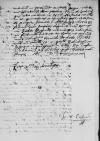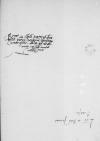List #873
Ioannes DANTISCUS do Piotr TOMICKILöbau (Lubawa), 1532-12-29
Rękopiśmienne podstawy źródłowe:
Publikacje:
| ||||||||||||||||||
Tekst + aparat krytyczny + komentarz Zwykły tekst Tekst + komentarz Tekst + aparat krytyczny Ekscerpty dotyczące podróży Dantyszka
Reverendissimo in Christo Patri et Domino,
Reverendissime in Christo Pater et Domine, Domine Colen[dissime]. Obsequiorum meorum plurimam commendationem.
Superiori die scripsi Dominationi Vestrae Reverendissimae, quid illustris dominus
De contributione nuper instituta, ut in dicione mea mihi remitteretur, de qua Dominatio Vestra Reverendissima bene me sperare iussit, quid actum sit, nondum scio. Rogo itaque impense, Dominatio Vestra Reverendissima cum hoc famulo meo certiorem me reddere dignetur. Ego profecto, licet in eo sim statu, numquam mihi videor fuisse pauperior, praesertim quando debita mihi ob oculos versantur et ista atque revera non alia est causa, quod adhuc consecrationi intendere non possim. Scripsi etiam me male valere in pede, in quo nondum convalui vereorque, cum fluxus ille ad eam partem declinaverit, quod non brevi convalebo. Nihilominus, ne qua neglegentia in servitio serenissimae maiestatis regiae fiat, in
Ex
Reverendissimae Dominationis Vestrae devinctissimus
[1 ] letter recommending Dantiscusʼ brother to Albrecht cf.


